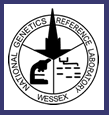Project
Leader: Chris
Mattocks
Download
evaluation
Matrix
assisted laser desorption ionisation mass spectrometry (MALDI)
has proved a very efficient and sensitive technology for
genotyping assays. Recently methodologies aimed at the re-sequencing
market have been emerging. Sequenom have developed a chemistry
initially aimed at SNP discovery that has great potential
for diagnostic mutation screening (technical
description).
In theory this technology is capable of both detecting and
characterising mutations with respect to a reference sequence,
although the typing of small insertions and deletions is currently
limited by computing power. Nevertheless, in the context of
a diagnostic screen, frameshift mutations are still highlighted
as aberrant and since they are likely to be pathogenic would
be need sequenced for confirmation purposes.
We
have set up an evaluation in collaboration with Sequenom
to assess the utility of this technology with respect to
diagnostic screening. A pilot study was carried out between
7/2003 and 2/2004 using existing amplicons covering hMLH1,
hMSH2 and newly designed amplicons for BRCA1 exon 11. This
study has highlighted a number of areas where improvements
could be made in the analysis software specifically to accommodate
diagnostic requirements. A further study is being planned
incorporating improved analysis procedures to evaluate MassCleave™ in
the context of the planned high throughput mutation detection
pipeline.
<Back
to mutation screening.
References
Stanssens P, Zabeau M, Meersseman G, Remes G, Gansemans Y,
Storm N, Hartmer R, Honisch C, Rodi CP, Bocker S, van den Boom
D.
High-throughput MALDI-TOF discovery of genomic sequence polymorphisms.
Genome Res. 2004 Jan;14(1):126-33.
Hartmer R, Storm N, Boecker S, Rodi CP, Hillenkamp F, Jurinke
C, van den Boom D.
RNase T1 mediated base-specific cleavage and MALDI-TOF MS for
high-throughput comparative sequence analysis.
Nucleic Acids Res. 2003 May 1;31(9):e47.
|

